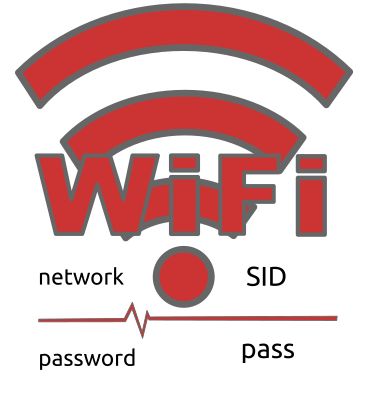Yesterday I posted about Wifi to power IoT. It proved that WiFi can send out energy that can power small electronics gadgets. But what else does that energy cause. We all know electronics that can get interference from cellular phones and other radio transmitters. WiFi devices (tablets, smart phones, IoT, base stations) all transmit RF signals, and can potentially cause interference to sensitive electronics that is not very well protected against it.
The interference to sensitive equipment has been long time concern on medical equipment field. At the same time wireless equipment have become more and more used inside hospitals (both by patients and doctors). Study: Wi-Fi Devices Require Minimum Distance from Medical Equipment article tells that electromagnetic radiation caused by wireless technology can interfere with electronic medical equipment and lead to serious clinical consequences for patients. Hospitals often specify that staff members carrying wireless transmitters not approach sensitive electronic medical devices any closer than a designated minimum separation distance (MSD).
New research from Concordia University helps to define safety parameters for health-care workers carrying Wi-Fi devices: “We found that MSD policy really does work. If hospital staff comply fully with the policy, they can have a tablet in the same room as the patient and medical equipment without posing a danger”
According to the study, the risk reduces rapidly by increasing the MSD from zero to a small value. The risk does not decrease further, however, with larger minimum separation distances. The bottom line: keep your wireless device further than arm’s length from medical equipment and the risk of interference is very small.

1 Comment
Tomi Engdahl says:
Fridge killed my baby? Mag-field radiation from household stuff ‘boosts miscarriage risk’
Living off grid, in the woods, away from all tech not such a loony idea after all
https://www.theregister.co.uk/2017/12/19/radiation_risk_miscarriage_study_says/
Analysis A study of 913 pregnant women in the San Francisco Bay Area, California, found those exposed to high levels of magnetic field (MF) non-ionizing radiation had a 2.72x higher risk of miscarriage than those exposed to low MF levels.
The Kaiser Permanente study, “Exposure to Magnetic Field Non-Ionizing Radiation and the Risk of Miscarriage: A Prospective Cohort Study,” was published this month in the journal Scientific Reports.
The authors, Kaiser researchers De-Kun Li, Hong Chen, Jeannette R. Ferber, Roxana Odouli, and Charles Quesenberry, say their findings add to the evidence that “MF non-ionizing radiation could have adverse biological impacts on human health.”
“In this study, we found an almost three-fold increased risk of miscarriage if a pregnant woman was exposed to higher MF levels compared to women with lower MF exposure,” the study says. “The association was independent of any specific MF exposure sources or locations, thus removing the concern that other factors connected to the sources of the exposure might account for the observed associations.”
Study participants were classified in four MF exposure groups – <2.5mG; 2.5–3.6mG; 3.7–6.2mG; and ≥6.3mG – based on 24 hours of measurements with an EMDEX Lite meter as a representation of daily exposure. The researchers did not find the miscarriage risk increased with doses above 2.5mG, leading them to theorize that 2.5mG represents a threshold level for health effects.
"The controversy over health effects from electromagnetic fields is, to a large extent, a product of earlier studies that did not find many associations between EMF and health risk,"
As Li observed, there is no scientific consensus that MF exposure harms human health. According to the National Cancer Institute, "[A]lthough many studies have examined the potential health effects of non-ionizing radiation from radar, microwave ovens, cell phones, and other sources, there is currently no consistent evidence that non-ionizing radiation increases cancer risk."
Cell Phones and Cancer Risk
https://www.cancer.gov/about-cancer/causes-prevention/risk/radiation/cell-phones-fact-sheet